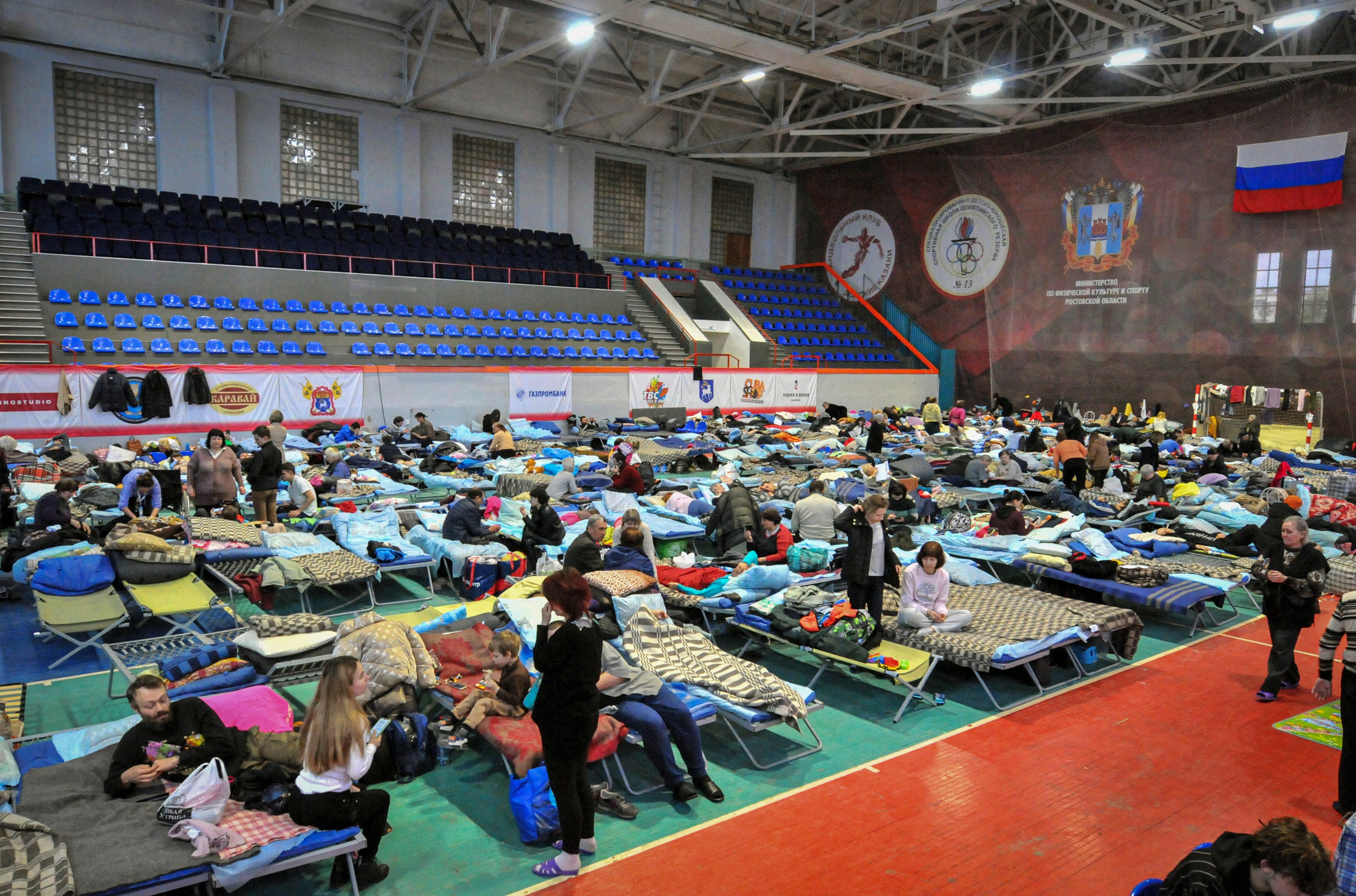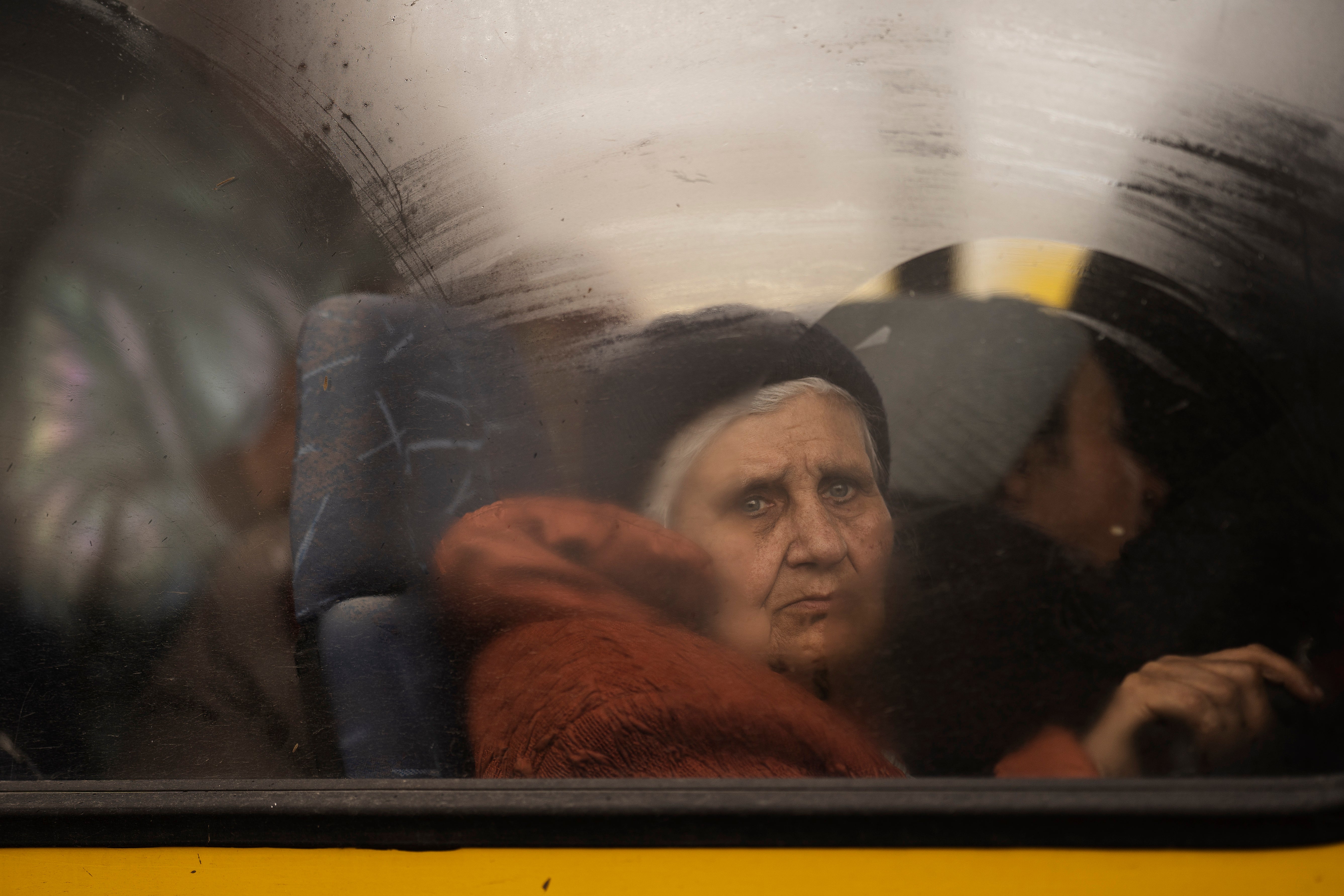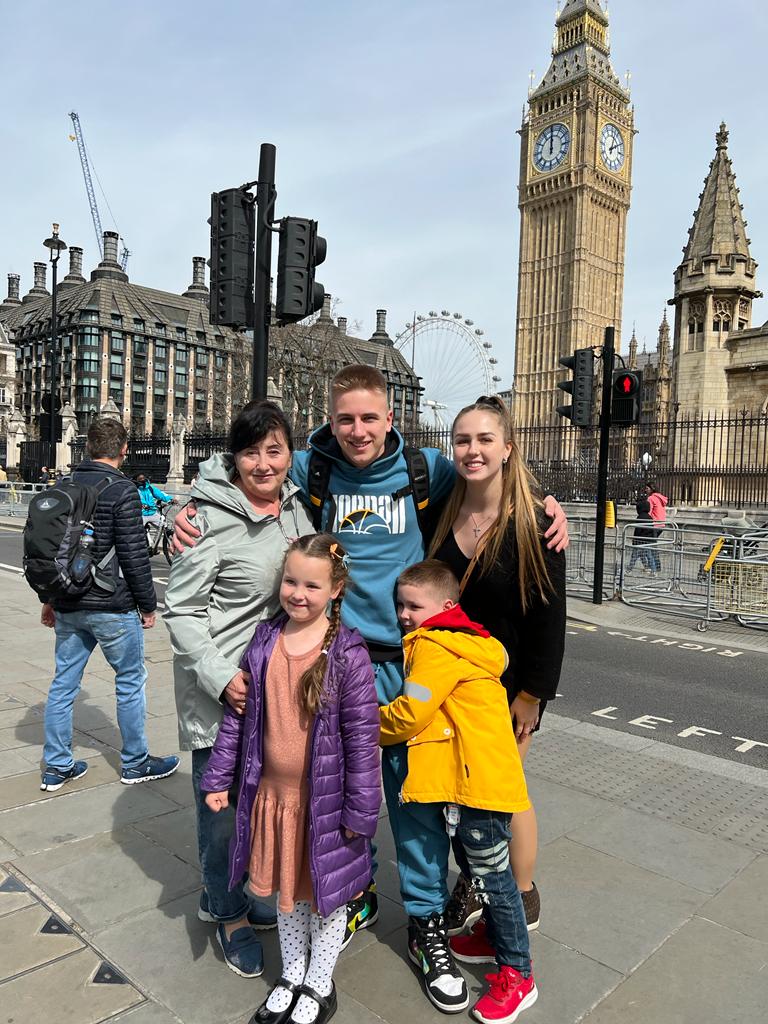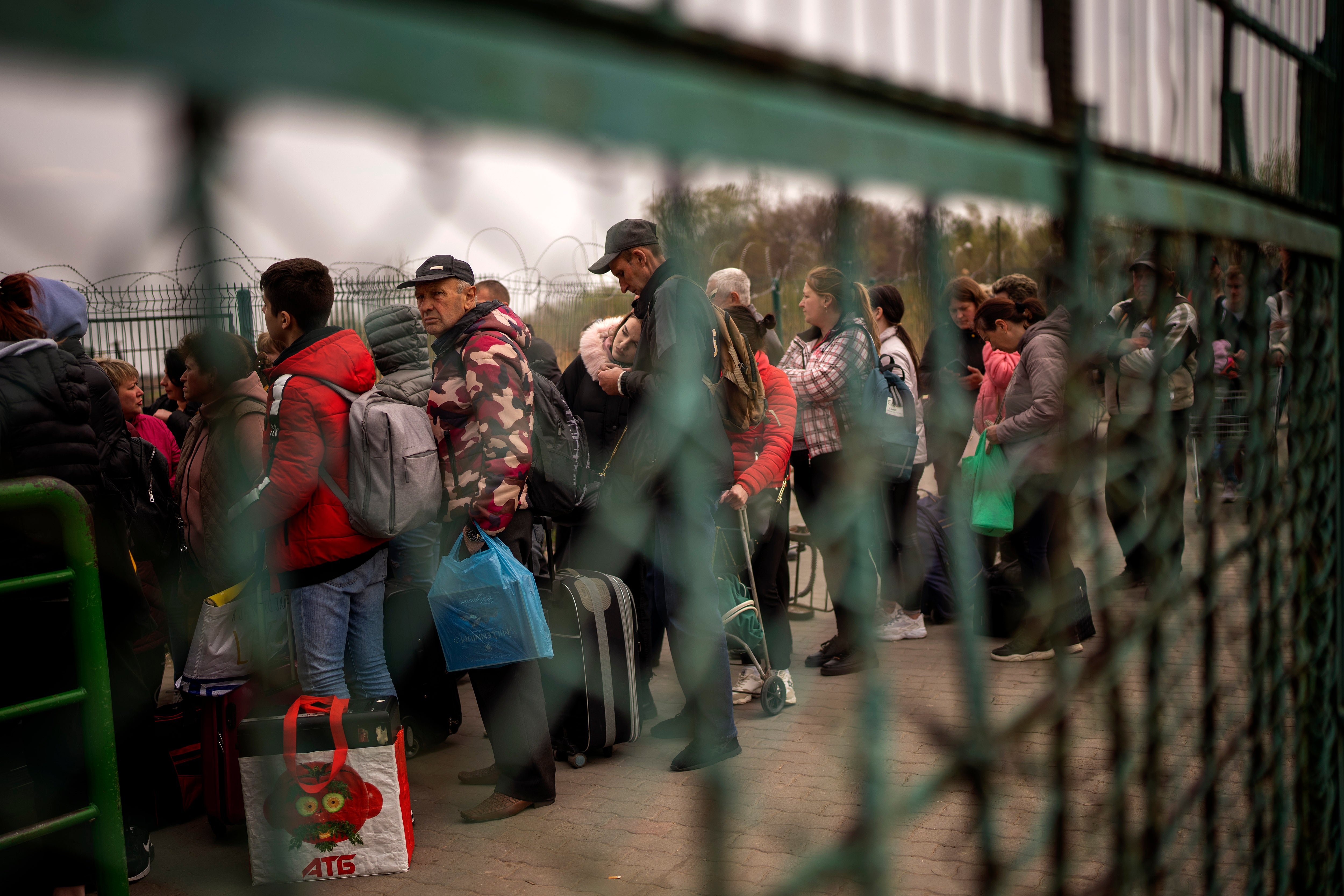‘Thousands’ of Ukraine refugees forced into overcrowded homes as UK system branded ‘dysfunctional disaster’
Exclusive: Families living in single rooms and forced to declare themselves homeless after fleeing war
Your support helps us to tell the story
From reproductive rights to climate change to Big Tech, The Independent is on the ground when the story is developing. Whether it's investigating the financials of Elon Musk's pro-Trump PAC or producing our latest documentary, 'The A Word', which shines a light on the American women fighting for reproductive rights, we know how important it is to parse out the facts from the messaging.
At such a critical moment in US history, we need reporters on the ground. Your donation allows us to keep sending journalists to speak to both sides of the story.
The Independent is trusted by Americans across the entire political spectrum. And unlike many other quality news outlets, we choose not to lock Americans out of our reporting and analysis with paywalls. We believe quality journalism should be available to everyone, paid for by those who can afford it.
Your support makes all the difference.Thousands of Ukrainians seeking refuge in the UK have been forced to live in overcrowded accommodation, with whole families sharing single rooms, charities have warned.
Many of the refugees who have come to Britain to join relatives after fleeing the war are affected, organisations working to help them say, with hundreds having registered as homeless due to poor living conditions.
It comes amid claims the Home Office’s Ukraine family scheme is “half-baked”, with a senior MP branding the situation a “dysfunctional disaster” – while The Independent’s Refugees Welcome campaign calling for the government to go further and faster to help Ukrainians fleeing their country.
Charities warn the majority of those arriving under the route are experiencing overcrowding because their relatives in the UK do not have spare rooms and no checks are carried out on these properties pre-arrival.
A survey carried out by the Greater London Authority of nine charities in the capital found that of 83 Ukrainian clients on the family scheme seeking support, more than half (58 per cent) were in unsuitable accommodation and nearly one in five (17 per cent) were at immediate risk of homelessness.
Meanwhile the government is refusing to publish national data it holds on the number of Ukrainians presenting to councils as homeless.

Andrei Savitski, service provider at the Work Rights Centre, said more than half of the Ukrainian refugees the charity supports are in overcrowded conditions, and that there would be thousands nationally given family sponsors often live in housing that is “already only just about suitable”.
He described one case of a Ukrainian family of five, with one disabled child, all living in one sublet bedroom in Nottinghamshire after the wife and children arrived at the start of April to join the husband, who was already living in precarious conditions as a night shift delivery driver.
“They’ve approached the council and said they need housing. Someone from the council has come to the flat and seen the conditions and said it’s not suitable, but their appointments for new housing have been postponed a number of times and they’re still there,” he said.
Government data shows that 16,000 have arrived under the Ukraine Family scheme, which allows refugees to join UK-based relatives, while 11,100 have arrived under the Homes for Ukraine scheme – a separate route which allows refugees to live with volunteer hosts in the UK.
Local authorities are given £10,500 in central government funding for each refugee under the Homes for Ukraine scheme, but receive no money for those arriving under the family route.

Calls are mounting for councils to be given funding to support those arriving under the family scheme, and for the government to allow refugees on this scheme to be able to switch to the Homes for Ukraine route.
Tatiana Miller, 44, who lives Wokingham, said her mother, sister and her sister’s two children arrived under the family route in mid-April. But they returned to Poland – where they had fled after the invasion – two weeks later because the living conditions were too overcrowded in the UK.
“We made it work for a short period of time. We did what we could, but on arrival it became obvious that it wasn’t sustainable. They went back to Poland even though they know no one there,” she told The Independent.

“The family scheme is unfair. We got no financial support, as sponsors do under the other scheme. The government seems to be on another planet. There is a desire to help, but they give with one hand and take away with the other. It’s half-baked. It’s heartless and not thought through.”
Svitlana Opanasenko, a volunteer at Ukraine social Club, said that of the approximately 200 households on the family scheme that the charity has supported since the start of March, between 90-95 per cent have been living in overcrowded conditions.
She said that at least a dozen of the families they support had been forced to move out of their relatives’ home and register as homeless with the local council because the situation was unsustainable, or because landlords had ordered them to leave due to the overcrowding.

“The families are desperate to get their relatives out of Ukraine, and they’re not looking at the square footage of their apartments. They just try to bring everyone in. People have nowhere else to go,” she said.
Ms Opanasenko added that refugees were also struggling to access financial support and were having to rely on food banks, adding: “We refer most of them for universal credit, but it takes time. You need to register, prove the address, get a bank card, then wait a month.
“People are desperate. The majority of families have little kids, so they need baby food, nappies. These are expensive, as is food in general. They don’t get information on how to get support.”
A survey of councils by the Local Government Association last month revealed that 144 Ukrainian households had presented as homeless across 190 local authorities since the start of the war.
The government has since carried out its own survey, but it is refusing to publish the resulting data.
A spokesperson said it was “gathering this information for monitoring purposes and to help us establish if any local authority needs additional support”.
Clive Betts, Labour MP and chair of the Levelling Up, Housing and Communities Committee, said the scheme was a “dysfunctional disaster”, adding: “Local authorities need to know how many refugees are here, what services they need. It’s information that should be in the public domain.”
He added that it was “ridiculous” that councils weren’t receiving funding for refugees on the family scheme, and said that in cases where families need to present as homeless they should be allowed to switch onto the Homes for Ukraine scheme.
Jon Featonby, policy and advocacy manager at the British Red Cross, said it was wrong that there wasn’t the same amount of wraparound support being provided through the family scheme compared to the other route.
“We would like to see families getting the support they need regardless of the scheme they arrived under, including giving sponsors and refugees the same level of financial support and providing local authorities with the funding they need to make sure suitable housing is available,” he said.
A government spokesperson said: “These schemes are designed to ensure people who are coming to the UK fleeing the Russian invasion of Ukraine are provided with accommodation by their family or sponsor. Under both schemes councils have a duty to provide support where someone is left without accommodation.”
The criticism came as Priti Patel, the home secretary, reportedly faced legal action over delays which have left Ukrainian refugees in limbo.
Charities including Save the Children and the Refugee Council are preparing a class action lawsuit on behalf of hundreds of refugees who applied to travel to the UK weeks ago but have been caught up in a visa backlog, according to The Guardian.
The Independent has a proud history of campaigning for the rights of the most vulnerable, and we first ran our Refugees Welcome campaign during the war in Syria in 2015. Now, as we renew our campaign and launch this petition in the wake of the Ukrainian crisis, we are calling on the government to go further and faster to ensure help is delivered. To find out more about our Refugees Welcome campaign, click here. To sign the petition click here. If you would like to donate then please click here for our GoFundMe page

Join our commenting forum
Join thought-provoking conversations, follow other Independent readers and see their replies
Comments